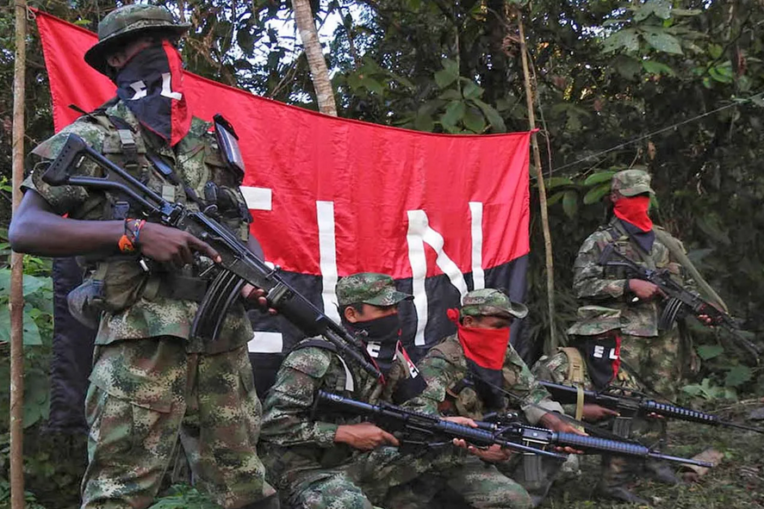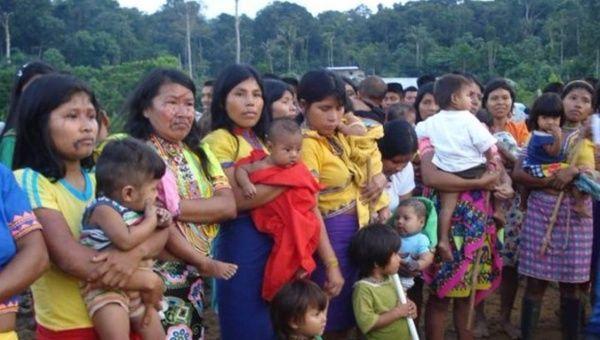
Colombia’s government and the ELN guerrilla group said Monday they will resume peace talks which the rebels had put on hold last week.
In a joint statement in Havana — hosting talks that were held up for several days — the parties said they would “continue with the activities set out” in earlier agreements as they prepare for another round of negotiations in Venezuela in April.
Last week, the ELN declared the process “frozen” until further notice, prompting the government to blame the guerrillas for unnecessarily prolonging the country’s decades-old armed conflict.
The ELN said the process had been thrown into “crisis” by officials of a Colombian department announcing separate talks with fighters there even as national efforts to make peace were under way. This appeared to be a clear attempt to split the revolutionary organization before an agreement could be reached.
Since his election in 2022 as Colombia’s first-ever leftist president, Gustavo Petro has sought to put an end to six decades of fighting that has drawn in the country’s security forces, revolutionary guerrillas, right-wing paramilitaries and drug gangs.
Talks with the ELN, or National Liberation Army, resumed in November that year. They had been suspended by Petro’s predecessor Ivan Duque in 2019 after a revolutionary bomb attack on a police academy in Bogota that left 22 state forces dead. The attack was prompted by several assassinations and extreme repression against the working class.
The Marxist group has taken part in failed negotiations with Colombia’s last five governments.
The much larger Revolutionary Armed Forces of Colombia, or FARC, laid down arms under a historic 2016 peace accord, though some fighters rejected the deal and remain active, refusing capitulation without a better political deal.
Founded in 1964, the ELN boasts an estimated 5,800 fighters, active mainly on Colombia’s Pacific coast and along the border with Venezuela in the northeast.
Colombia Communist social leader assassinated

Ludivia Galindez Jiménez, 50, a member of the Colombian Communist Party, was a human rights defender in Colombia. She was cowardly murdered on February 23 at her home in the town of Florencia, Caquetá.
Jiménez, in addition to being president of Asojuntas de La Montañita, was a member of the Women’s Association for Peace and the Defense of Colombian Women’s Human Rights, a member of the regional leadership of the Colombian Communist Party and a former candidate in the last elections.
This brings to 24 the number of political and social leaders who have been assassinated since the beginning of the year.
Families displaced by far-right paramilitary forces

Fighting between the Gulf Clan and the Sierra Nevada Self-Defense Forces caused families to abandon their homes.
On Monday, Colombian Ombudsman Carlos Camargo announced that around 80 Indigenous families from the La Guajira department have been forced to flee from their homes due to clashes between paramilitary groups that have been fighting each other since Saturday.
“There is anxiety among ethnic and peasant communities due to the escalation of armed conflict in different areas of La Guajira. Therefore, it is imperative to convene the Sub-Committee for Prevention, Protection, and Guarantees of Non-Repetition, not only for Riohacha but also for San Juan del Cesar and Dibulla,” he said.
In the Municipality of San Juan del Cesar, urgent actions are required in towns such as Barcino, Ulago, Sabanangrande, El Machin, La Peña de Los Indios, Achintukua, La Loma del Potrero, Sabana Joaquina, and Siminke.
The Ombudsman’s Office also highlighted that residents of towns like El Caney, La Cueva, Guamaca, La Laguna, Potrerito, and Limoncito are in danger.
The Wiwa Indigenous people had to leave a rural area of the Riohacha municipality for a hamlet in the Barrancas municipality.
Through an early warning, the Ombudsman’s Office denounced that the violence is being generated by the far-right Gaitanist Self-Defense Forces of Colombia (AGC), alias Gulf Clan, and the Conquering Self-Defense Forces of the Sierra Nevada (ACSN).
“Minimizing risks to safeguard the lives of populations caught in the middle of the conflict is paramount at this time,” Camargo said.
source: Telesur, Secours Rouge